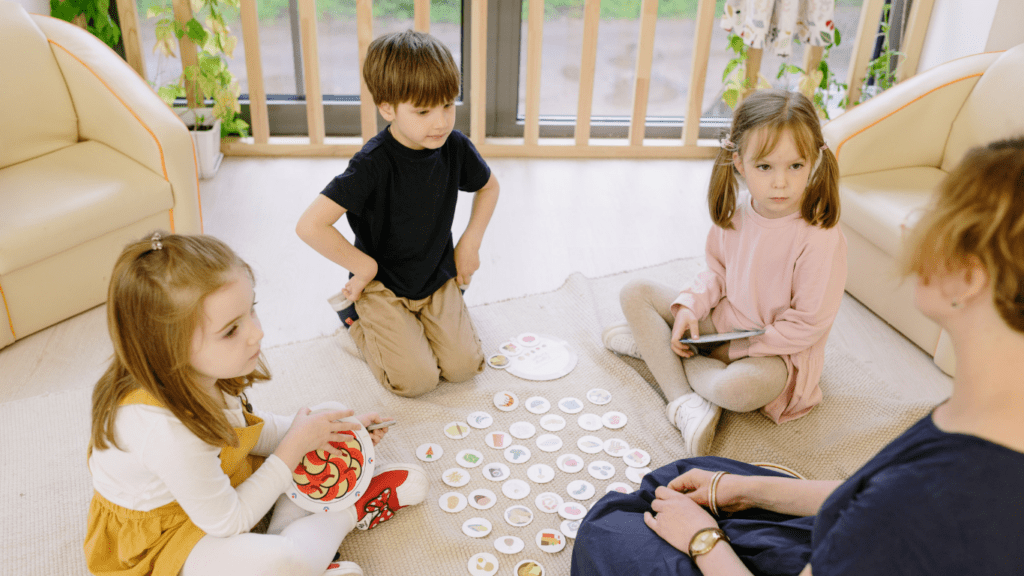Understanding Mental Health in Kids
Children’s mental health encompasses emotional, psychological, and social well-being. It impacts how they think, feel, and act. If kids struggle with mental health issues, it can affect their daily functioning, academic performance, and relationships.
Recognizing Common Mental Health Issues
Children might face various mental health challenges, including anxiety disorders, depression, and attention-deficit/hyperactivity disorder (ADHD). Signs of anxiety include excessive worrying, irritability, and sleep disturbances. Depression can manifest as persistent sadness, withdrawal from activities, and changes in appetite. ADHD symptoms include difficulty concentrating, hyperactivity, and impulsiveness.
Factors Influencing Mental Health
Several factors influence a child’s mental health. Genetic predisposition plays a role, as mental health issues can run in families. Environmental factors, such as exposure to trauma or chronic stress, also impact a child’s mental well-being. The quality of relationships with family members, especially parents, directly affects their emotional health. Supporting a child requires understanding these influences and addressing them.
Importance of Early Intervention
Early intervention in mental health issues is critical for better outcomes. I encourage parents to seek professional help when they first notice signs of distress in their children. Therapies like cognitive-behavioral therapy (CBT) can help manage anxiety and depression. For ADHD, behavioral therapy combined with medication might be effective. Early diagnosis and treatment can help children develop coping mechanisms, improving their overall well-being.
Creating a Supportive Environment
A nurturing environment plays a significant role in a child’s mental health. Establishing open communication lets children feel heard and understood. Encourage kids to express their feelings and validate their emotions. Consistent routines provide a sense of security, minimizing stress. Positive reinforcement and setting realistic expectations foster a supportive atmosphere. Creating this environment helps children build resilience and confidence.
Common Mental Health Issues in Children

Children often face various mental health challenges. Understanding these issues helps parents support their kids better.
Anxiety Disorders
Anxiety disorders affect many children, causing excessive worry or fear. Kids may experience generalized anxiety disorder, social anxiety, or separation anxiety. Common signs include frequent headaches, stomachaches, and sleep problems. If a child avoids social interactions or appears overly self-critical, they might be struggling with anxiety. Professional counseling and cognitive-behavioral therapy (CBT) can be effective treatments.
Depression
Depression in children often manifests as persistent sadness or irritability. Unlike adults, kids might show anger or oppositional behavior. Symptoms include changes in appetite, sleep disturbances, and loss of interest in usual activities. Depressed children might withdraw from friends and family or express feelings of worthlessness. Professional support, including therapy and possibly medication, is essential for managing depression.
ADHD
Attention-deficit/hyperactivity disorder (ADHD) affects a child’s ability to focus and control impulses. Common signs include difficulty sustaining attention, hyperactivity, and impulsive behavior. Children with ADHD might fidget, interrupt others, or struggle to follow instructions. Behavioral therapy and, in some cases, medication, can help manage ADHD symptoms effectively.
The Importance of Early Intervention
Early intervention can make a significant difference in a child’s mental well-being, affecting their future emotional and psychological development. Recognizing and addressing mental health concerns at the earliest stage can prevent more severe issues down the line.
Signs to Watch For
Parents need to be vigilant about changes in their child’s behavior that might indicate mental health issues. Look for:
- Mood Swings: Frequent mood changes, from extreme happiness to deep sadness, can signal emotional instability.
- Withdrawal: Avoiding social interactions and preferring isolation might indicate depression or anxiety.
- Academic Decline: Sudden drops in grades or disinterest in schoolwork can point to underlying psychological concerns.
- Physical Symptoms: Recurring headaches, stomach aches, or other unexplained bodily complaints might relate to emotional distress.
- Changes in Sleep and Appetite: Insomnia or sleeping too much, along with eating too little or excessively, may indicate mental health problems.
Seeking Professional Help
When signs of distress are evident, contacting a mental health professional becomes crucial. Consulting a pediatric psychologist or psychiatrist can provide:
- Accurate Diagnosis: Professionals can conduct thorough evaluations to identify specific mental health issues.
- Treatment Plans: Tailored therapeutic approaches such as cognitive-behavioral therapy (CBT) can address unique needs.
- Medication Management: In some cases, medication prescribed by a psychiatrist might be necessary to manage symptoms.
- Parent Education: Learning strategies for supporting a child’s mental health at home enhances the overall effectiveness of treatment.
Early intervention minimizes long-term impacts and helps children build a strong foundation for emotional resilience and psychological well-being.
Latest Recommendations for Parents
To support children’s mental health effectively, it’s crucial to implement evidence-based strategies. Below are the latest recommendations geared towards fostering a balanced and supportive environment for kids.
Promoting Open Communication
Establishing a safe space for dialogue plays a pivotal role in a child’s mental well-being. I recommend that parents:
- Listen Actively: Pay close attention when children share their thoughts and feelings. This helps them feel valued.
- Ask Open-Ended Questions: Stimulate deeper conversations by asking questions like “How did that make you feel?” instead of yes/no questions.
- Validate Emotions: Acknowledge their feelings without judgment. Saying “I understand why you feel that way” can be comforting.
- Be Available: Ensure children know they can come to you anytime without fear of judgment or punishment.
Encouraging a Healthy Lifestyle
A balanced diet and regular physical activity significantly influence mental health. Parents should:
- Promote Nutritious Eating: Include fruits, vegetables, whole grains, and lean proteins in daily meals. Nutrient-rich foods improve mood and energy levels.
- Encourage Regular Exercise: Aim for at least 60 minutes of physical activity daily. Activities like biking, swimming, or playing sports can reduce anxiety and boost mood.
- Ensure Adequate Sleep: Children need 9-12 hours of sleep per night based on their age. A consistent bedtime routine helps regulate sleep patterns.
- Model Healthy Habits: Demonstrate balanced eating and active living through your actions.
Managing Screen Time
Excessive screen time can negatively impact mental health. To balance digital exposure:
- Set Clear Boundaries: Define specific hours for using devices. For example, no screens during meals or an hour before bed.
- Encourage Offline Activities: Offer engaging alternatives like reading, board games, or outdoor play.
- Monitor Content: Ensure the content consumed is age-appropriate and non-violent. Consider using parental controls and filters.
- Lead by Example: Limit your own screen time to set a positive precedent.
By implementing these strategies, parents can create an environment that prioritizes and supports their children’s mental health.
Supporting Your Child’s Mental Health at Home
Providing a nurturing and supportive environment at home plays a crucial role in your child’s mental well-being.
Creating a Stress-Free Environment
Reducing stress at home boosts a child’s mental health. Begin by establishing a consistent daily routine. Children thrive with predictability, so having set times for meals, homework, and bedtime helps them feel secure. Ensure your home is a calm space by managing noise levels and minimizing unnecessary clutter. Maintain a harmonious household by addressing conflicts peacefully and teaching your child conflict resolution skills. Encourage regular breaks from academic or extracurricular pressures, allowing time for relaxation and hobbies. By creating a stress-free home, you set a foundation for your child’s mental well-being.
Building Emotional Resilience
Building resilience helps children cope with challenges. Foster open communication by actively listening to your child and validating their feelings. Teach problem-solving skills and coping mechanisms, such as deep breathing or mindfulness practices. Encourage them to engage in social activities and build strong relationships with peers and family. Promote self-esteem by recognizing their achievements and supporting their interests. Provide opportunities for your child to face age-appropriate challenges to build confidence. Building emotional resilience equips your child with tools to handle life’s stressors effectively, contributing to better mental health.



 Editheena Kees – Health and Wellness Specialist Editheena Kees is a dedicated Health and Wellness Specialist at Makes Parenting Watch, where she combines her expertise in pediatric health, nutrition, and mental wellness to offer parents comprehensive support for raising healthy children. With a background in public health and family nutrition counseling, Editheena understands the importance of a balanced approach to both physical and mental well-being. She writes extensively on topics such as healthy eating habits for children, strategies for managing parental stress, and the importance of self-care for new parents. Editheena also emphasizes the significance of fostering healthy emotional development in children, offering tips on building resilience and maintaining strong family connections. Her holistic approach ensures that families are equipped not just to survive the challenges of parenting, but to thrive. In addition to her writing, Editheena collaborates with healthcare professionals to provide readers with the latest research and recommendations in child health.
Editheena Kees – Health and Wellness Specialist Editheena Kees is a dedicated Health and Wellness Specialist at Makes Parenting Watch, where she combines her expertise in pediatric health, nutrition, and mental wellness to offer parents comprehensive support for raising healthy children. With a background in public health and family nutrition counseling, Editheena understands the importance of a balanced approach to both physical and mental well-being. She writes extensively on topics such as healthy eating habits for children, strategies for managing parental stress, and the importance of self-care for new parents. Editheena also emphasizes the significance of fostering healthy emotional development in children, offering tips on building resilience and maintaining strong family connections. Her holistic approach ensures that families are equipped not just to survive the challenges of parenting, but to thrive. In addition to her writing, Editheena collaborates with healthcare professionals to provide readers with the latest research and recommendations in child health.
